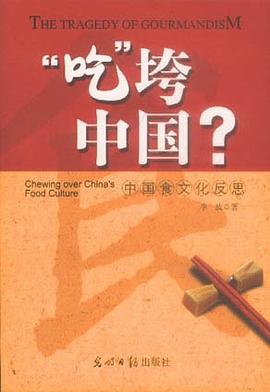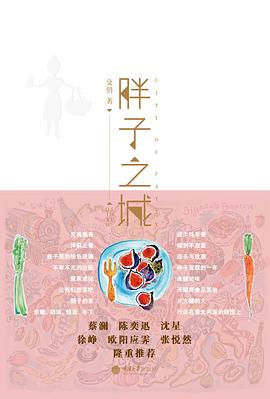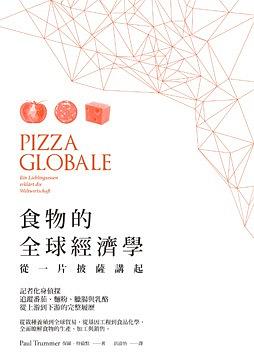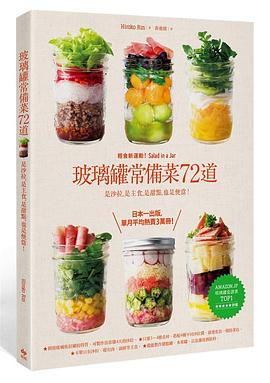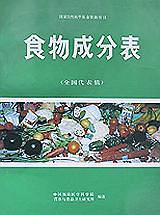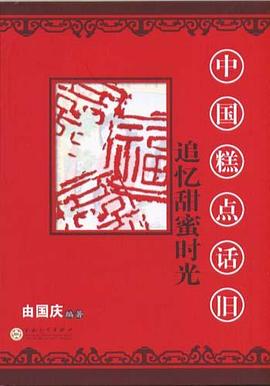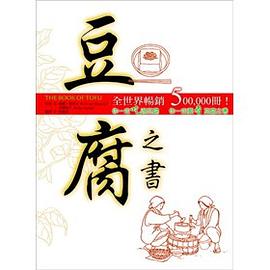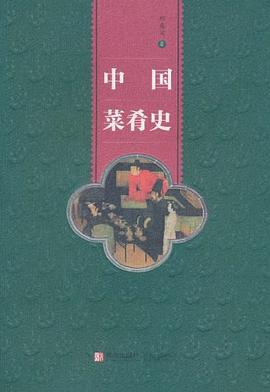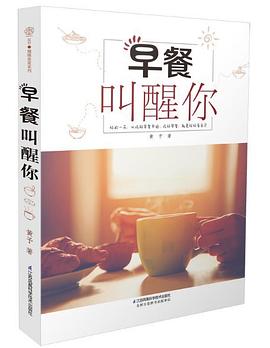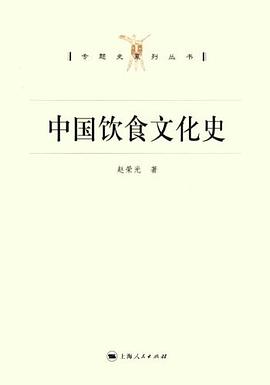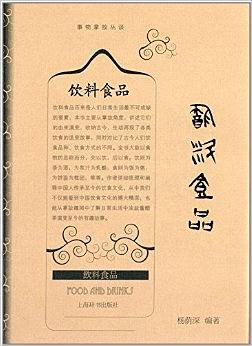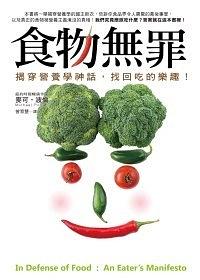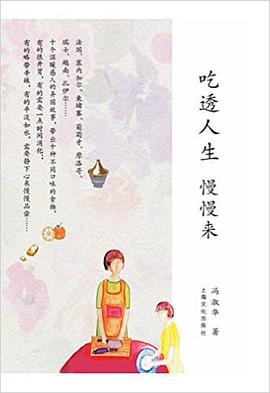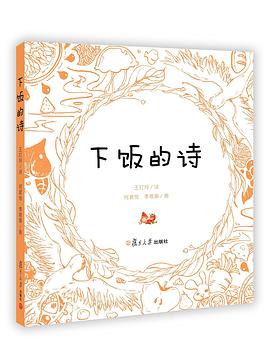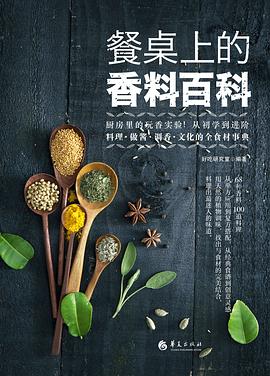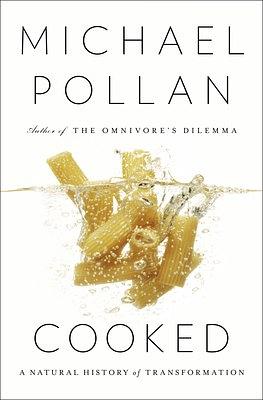

具体描述
In Cooked, Michael Pollan explores the previously uncharted territory of his own kitchen. Here, he discovers the enduring power of the four classical elements—fire, water, air, and earth—to transform the stuff of nature into delicious things to eat and drink. Apprenticing himself to a succession of culinary masters, Pollan learns how to grill with fire, cook with liquid, bake bread, and ferment everything from cheese to beer. In the course of his journey, he discovers that the cook occupies a special place in the world, standing squarely between nature and culture. Both realms are transformed by cooking, and so, in the process, is the cook.
Each section of Cooked tracks Pollan’s effort to master a single classic recipe using one of the four elements. A North Carolina barbecue pit master tutors him in the primal magic of fire; a Chez Panisse–trained cook schools him in the art of braising; a celebrated baker teaches him how air transforms grain and water into a fragrant loaf of bread; and finally, several mad-genius “fermentos” (a tribe that includes brewers, cheese makers, and all kinds of picklers) reveal how fungi and bacteria can perform the most amazing alchemies of all. The reader learns alongside Pollan, but the lessons move beyond the practical to become an investigation of how cooking involves us in a web of social and ecological relationships: with plants and animals, the soil, farmers, our history and culture, and, of course, the people our cooking nourishes and delights. Cooking, above all, connects us.
The effects of not cooking are similarly far reaching. Relying upon corporations to process our food means we consume huge quantities of fat, sugar, and salt; disrupt an essential link to the natural world; and weaken our relationships with family and friends. In fact, Cooked argues, taking back control of cooking may be the single most important step anyone can take to help make the American food system healthier and more sustainable. Reclaiming cooking as an act of enjoyment and self-reliance, learning to perform the magic of these everyday transformations, opens the door to a more nourishing life.
作者简介
Michael Pollan is the author of five books: Second Nature, A Place of My Own, The Botany of Desire, which received the Borders Original Voices Award for the best nonfiction work of 2001 and was recognized as a best book of the year by the American Booksellers Association and Amazon, and the national bestellers, The Omnivore's Dilemma, and In Defense of Food.
A longtime contributing writer to The New York Times Magazine, Pollan is also the Knight Professor of Journalism at UC Berkeley. His writing on food and agriculture has won numerous awards, including the Reuters/World Conservation Union Global Award in Environmental Journalism, the James Beard Award, and the Genesis Award from the American Humane Association.
目录信息
读后感
听的电子书,环境里声音大,比如洗澡啊,炒菜啊,就成词成句的漏掉了,但是听到的部分还是非常有趣。而且,写的太好了。 主要是从火 (美国南方BBQ猪肉), 水,空气 (面包,这一部分写的好细腻,印象深刻),earth (各种fermantation,主要关于微生物,泡菜,酿酒)。很生活气...
评分民以食为天,在经济发展较好、生活物质水平提高的今天,“吃货”已不再是贬义词,甚至有种我是吃货我幸福的理直气壮之感。提到吃,那自然离不开“烹饪”二字,如今各种类型以食为主题的书籍可谓层出不穷。在这繁花乱眼的境遇中倒也发现了一个“饮食觉醒系列”,那就在此浅淡一...
评分民以食为天,这话适用于全人类。饮食伴随着人类进化繁衍过程的始终,如今人们依旧在吃什么、怎么吃方上不断思考,饮食的营养健康、烹饪的工具方法等一直是人们不断讨论的话题。人们的饮食生活也在社会发展中逐渐改变着。 现代人生活节奏加快,生活方式多样,平时有精力有意愿自...
评分文/赵客 如果说中国是美食第二大国,那么估计世界上的其他国家都不敢自称为第一,一部《舌尖上的中国》不知吸引了多少美食爱好者在的目光。中国地域辽阔,食材种类众多,煎炒烹炸蒸溜糟炖醉,中国的语言当中关于烹饪方法的词汇就有有几十种。从这些字的偏旁部首上,基本可以看...
评分读这本书之前正好读了一本《养肠先养肠内菌》这本书,是一本讲肠道菌群与人体关系的健康科普书籍。结合阅读起来,除了书中提到的“汤锅好比人类的第二个胃”这个观点之外,“烹饪”这本书给我更大的启发是:”我们应该更好地学会喂养细菌。现在很多人都会养宠物,其实用心去喂...
用户评价
这是一本让我感到惊喜连连的书,就像在海边捡到一颗与众不同的贝壳,每一个角度都散发着独特的魅力。作者的文字功底极佳,语言流畅而富有感染力,总能在不经意间触动人心最柔软的部分。它不是一本写给专业厨师的书,也不是一本写给美食评论家的书,而是一本写给每一个热爱生活、热爱食物的普通人的书。书中描绘的那些关于家庭、关于记忆、关于成长的故事,都充满了人情味,让我仿佛置身其中,感同身受。我被书中那些充满画面感的描写所打动,无论是阳光透过窗户洒在厨房的灶台上,还是一家人围坐在一起分享晚餐的温馨场景,都描绘得细致入微,让人心生向往。作者对于食物与情感的连接的探讨,更是让我深思。我开始意识到,很多时候,我们对某一道菜的眷恋,不仅仅是因为它的味道,更是因为它背后所承载的记忆和情感。这本书,让我重新审视了“家”的意义,让我更加懂得如何用食物去表达爱,去维系情感。它不仅仅是一本关于美食的书,更是一本关于生活、关于人生的书。读完这本书,我感觉自己的内心被一种温暖而深沉的力量所充盈,对生活充满了感激和热爱。我迫不及待地想将这份美好分享给我的朋友们,让他们也一起感受这本书带来的温暖和启迪。
评分当我翻开《Cooked》这本书时,我并没有想到它会给我带来如此深刻的触动。它不仅仅是一本关于食物的书,更是一本关于生活、关于情感、关于人生的书。作者的文字功底极佳,语言流畅而富有感染力,总能在不经意间触动人心最柔软的部分。书中描绘的那些关于家庭、关于记忆、关于成长的故事,都充满了人情味,让我仿佛置身其中,感同身受。我被书中那些充满画面感的描写所打动,无论是阳光透过窗户洒在厨房的灶台上,还是家人围坐在一起分享晚餐的温馨场景,都描绘得细致入微,让人心生向往。作者对于食物与情感的连接的探讨,更是让我深思。我开始意识到,很多时候,我们对某一道菜的眷恋,不仅仅是因为它的味道,更是因为它背后所承载的记忆和情感。这本书,让我重新审视了“家”的意义,让我更加懂得如何用食物去表达爱,去维系情感。它不仅仅是一本关于美食的书,更是一本关于生活、关于人生的书。读完这本书,我感觉自己的内心被一种温暖而深沉的力量所充盈,对生活充满了感激和热爱。我迫不及待地想将这份美好分享给我的朋友们,让他们也一起感受这本书带来的温暖和启迪。
评分这本书给我的感觉,就像在读一位久未谋面的老朋友的来信,字里行间充满了真诚与坦率。作者的叙述方式非常独特,没有矫揉造作,也没有刻意煽情,只是平静地讲述着自己的经历,讲述着那些与食物有关的故事。然而,正是这种朴实无华的叙述,却有着一种直击人心的力量。我被书中那些细致入微的描写所打动,无论是对食材的触感,还是对味道的感知,都描绘得极其生动。我仿佛能闻到那股淡淡的烟火气,听到那锅中咕嘟咕嘟的响声,感受到那份从食材到成品过程中所蕴含的耐心与匠心。书中那些关于食物与记忆的连接,让我产生了强烈的共鸣。我们每个人都有那么一道菜,能瞬间勾起我们内心深处的回忆,能让我们回到某个特定的时刻,重温那份熟悉的情感。这本书就做到了这一点,它用食物串联起了无数个动人的瞬间,勾勒出了一个充满温情的生活画卷。我尤其喜欢书中对于家庭关系的描绘,那些看似微不足道的家庭聚会,那些围坐在一起分享食物的时刻,都被作者赋予了深沉的意义。它让我反思,在快节奏的现代生活中,我们是否渐渐丢失了那些与家人朋友共享美食的简单快乐。这本书,就像一剂良药,提醒我们要放慢脚步,去感受生活的美好,去珍惜身边的人。它让我重新认识到,烹饪不仅仅是一种技能,更是一种表达爱的方式,一种维系亲情的方式。读完这本书,我迫不及待地想回到厨房,为我的家人做一顿饭,用食物传递我的爱与温暖。
评分这是一本让我感到非常治愈的书,就像在寒冷的冬日里,一杯热腾腾的咖啡,温暖而又舒心。作者的文字风格非常亲切,没有丝毫的距离感,仿佛在与一位老朋友聊天。他用平实而真挚的语言,讲述着那些与食物有关的温暖故事,那些关于家、关于亲情、关于回忆的点点滴滴。我被书中那些充满画面感的描写所打动,无论是阳光透过窗户洒在厨房的灶台上,还是家人围坐在一起分享晚餐的温馨场景,都描绘得细致入微,让人心生向往。作者对于食物与情感的连接的探讨,更是让我深思。我开始意识到,很多时候,我们对某一道菜的眷恋,不仅仅是因为它的味道,更是因为它背后所承载的记忆和情感。这本书,让我重新审视了“家”的意义,让我更加懂得如何用食物去表达爱,去维系情感。它不仅仅是一本关于美食的书,更是一本关于生活、关于人生的书。读完这本书,我感觉自己的内心被一种温暖而深沉的力量所充盈,对生活充满了感激和热爱。我迫不及待地想将这份美好分享给我的朋友们,让他们也一起感受这本书带来的温暖和启迪。
评分这本书给我的感觉,就像在读一位久未谋面的老朋友的来信,字里行间充满了真诚与坦率。作者的叙述方式非常独特,没有矫揉造作,也没有刻意煽情,只是平静地讲述着自己的经历,讲述着那些与食物有关的故事。然而,正是这种朴实无华的叙述,却有着一种直击人心的力量。我被书中那些细致入微的描写所打动,无论是对食材的触感,还是对味道的感知,都描绘得极其生动。我仿佛能闻到那股淡淡的烟火气,听到那锅中咕嘟咕嘟的响声,感受到那份从食材到成品过程中所蕴含的耐心与匠心。书中那些关于食物与记忆的连接,让我产生了强烈的共鸣。我们每个人都有那么一道菜,能瞬间勾起我们内心深处的回忆,能让我们回到某个特定的时刻,重温那份熟悉的情感。这本书就做到了这一点,它用食物串联起了无数个动人的瞬间,勾勒出了一个充满温情的生活画卷。我尤其喜欢书中对于家庭关系的描绘,那些看似微不足道的家庭聚会,那些围坐在一起分享食物的时刻,都被作者赋予了深沉的意义。它让我反思,在快节奏的现代生活中,我们是否渐渐丢失了那些与家人朋友共享美食的简单快乐。这本书,就像一剂良药,提醒我们要放慢脚步,去感受生活的美好,去珍惜身边的人。它让我重新认识到,烹饪不仅仅是一种技能,更是一种表达爱的方式,一种维系亲情的方式。读完这本书,我迫不及待地想回到厨房,为我的家人做一顿饭,用食物传递我的爱与温暖。
评分这是一本让我重新审视“家”的意义的书,也是一本让我对食物与情感的连接有了更深层次理解的书。起初被它的封面吸引,那种质朴的、带着温暖光泽的色调,仿佛能闻到厨房里飘散出的诱人香气。翻开第一页,我便被作者的文字深深吸引。它不是一本枯燥的食谱,也不是一本空泛的感悟录,而是一部关于生活、关于记忆、关于人情味娓娓道来的篇章。书中描绘的那些场景,那些食物,都好像拥有生命一般,在我脑海中鲜活地跳跃。我仿佛能看到祖母在灶台前忙碌的身影,听见父亲在餐桌上爽朗的笑声,感受到家人围坐在一起共享一顿晚餐时的那种温馨与满足。作者对于细节的捕捉是如此细腻,无论是食材的选择,还是烹饪过程中的点滴变化,都被描绘得栩栩如生。那些看似平凡的厨房场景,在作者的笔下却充满了诗意与哲思。它让我意识到,食物不仅仅是为了果腹,更是承载了无数情感和回忆的载体。每一次的烹饪,都是一次与过去的对话,一次与亲人的连接。读这本书,就像在品尝一道精心烹制的美食,每一口都回味无穷,每一次咀嚼都带来不同的感受。它不仅仅是一本书,更像是一次心灵的洗礼,一次对生活的热爱宣言。它让我开始更加珍惜生活中的每一个平凡的瞬间,更加懂得用美食去表达爱,去维系情感。这本书,我愿意反复阅读,并且把它推荐给每一个渴望温暖和真挚情感的人。它所传递的,不仅仅是烹饪的技巧,更是关于如何去爱,如何去生活的人生智慧。
评分我一直认为,一本好的书,应该能够引发读者的思考,能够拓宽读者的视野。《Cooked》这本书,无疑做到了这一点。它以一种意想不到的方式,将我带入了一个全新的视角,去审视我们与食物的关系。作者的叙述方式非常独特,他不仅仅是讲述故事,更是带领我一起去探索食物背后的深刻含义。我被书中那些关于食物与历史、食物与文化、食物与社会联系的论述所深深吸引。作者用丰富的知识和深刻的洞察力,将这些看似宏大的主题,与我们日常的饮食生活巧妙地联系起来。我开始意识到,我们所吃的每一口食物,都不仅仅是简单的营养摄入,更是承载了无数的故事和意义。书中对于不同烹饪方式的解读,也让我大开眼界。它不仅仅是介绍如何烹饪,更是探讨了不同烹饪方式所蕴含的哲学和文化。例如,烘焙这个概念,在作者的笔下,不再是简单的加热过程,而是一种魔法,一种将平凡的面粉转化为香甜美味的奇迹。这本书,拓展了我对食物的认知边界,让我开始用一种更广阔、更深刻的视角去看待我们每天都在接触的食物。它不仅满足了我对美食的好奇心,更激发了我对生活的热爱和对未知的好奇。读完这本书,我感觉自己仿佛获得了一次心灵的升级,对世界的理解也变得更加丰富和立体。
评分《Cooked》这本书,就像一扇通往另一个世界的大门,让我得以窥见食物背后隐藏的无限可能。作者的叙事方式非常引人入胜,他以一种探索者的姿态,带领我深入了解食物的起源、发展以及它与人类社会之间密不可分的关系。我被书中那些关于食物与历史、食物与文化、食物与社会联系的论述所深深吸引。作者用丰富的知识和深刻的洞察力,将这些看似宏大的主题,与我们日常的饮食生活巧妙地联系起来。我开始意识到,我们所吃的每一口食物,都不仅仅是简单的营养摄入,更是承载了无数的故事和意义。书中对于不同烹饪方式的解读,也让我大开眼界。它不仅仅是介绍如何烹饪,更是探讨了不同烹饪方式所蕴含的哲学和文化。例如,烧烤这个概念,在作者的笔下,不再是简单的火焰炙烤,而是一种原始的仪式,一种与自然连接的方式。这本书,拓展了我对食物的认知边界,让我开始用一种更广阔、更深刻的视角去看待我们每天都在接触的食物。它不仅满足了我对美食的好奇心,更激发了我对生活的热爱和对未知的好奇。读完这本书,我感觉自己仿佛获得了一次心灵的升级,对世界的理解也变得更加丰富和立体。
评分坦白说,当我拿到这本书时,我并没有抱有太高的期待,毕竟市面上的美食书籍太多了,很容易陷入千篇一律的窠臼。然而,《Cooked》这本书却给了我一个巨大的惊喜。它以一种极其新颖的视角,探讨了食物与我们生活之间密不可分的关系。作者没有停留在简单的食谱介绍,而是深入挖掘了食物背后的文化、历史以及情感内涵。每一篇文章都像是一次深入的探索,带领我走进一个全新的领域。我被书中关于食物与人类演化、食物与社会结构、食物与身份认同的论述所深深吸引。作者用丰富的知识储备和深刻的洞察力,将这些看似遥远的概念与我们日常的饮食生活巧妙地联系起来。我开始意识到,我们所吃的每一口食物,都不仅仅是简单的营养摄入,更是承载了无数的故事和意义。书中对于不同烹饪方式的解读,也让我耳目一新。它不仅仅是介绍如何烹饪,更是探讨了不同烹饪方式所蕴含的哲学和文化。例如,发酵这个概念,在作者的笔下,不再是简单的微生物作用,而是一种生命的延续,一种时间与智慧的沉淀。这本书,拓展了我对食物的认知边界,让我开始用一种更广阔、更深刻的视角去看待我们每天都在接触的食物。它不仅满足了我对美食的好奇心,更激发了我对生活的热爱和对未知的好奇。读完这本书,我感觉自己仿佛获得了一次心灵的升级,对世界的理解也变得更加丰富和立体。
评分这是一本让我重新认识“家”的书,也是一本让我对食物与情感的连接有了更深层次理解的书。起初被它的封面吸引,那种质朴的、带着温暖光泽的色调,仿佛能闻到厨房里飘散出的诱人香气。翻开第一页,我便被作者的文字深深吸引。它不是一本枯燥的食谱,也不是一本空泛的感悟录,而是一部关于生活、关于记忆、关于人情味娓娓道来的篇章。书中描绘的那些场景,那些食物,都好像拥有生命一般,在我脑海中鲜活地跳跃。我仿佛能看到祖母在灶台前忙碌的身影,听见父亲在餐桌上爽朗的笑声,感受到家人围坐在一起共享一顿晚餐时的那种温馨与满足。作者对于细节的捕捉是如此细腻,无论是食材的选择,还是烹饪过程中的点滴变化,都被描绘得栩栩如生。那些看似平凡的厨房场景,在作者的笔下却充满了诗意与哲思。它让我意识到,食物不仅仅是为了果腹,更是承载了无数情感和回忆的载体。每一次的烹饪,都是一次与过去的对话,一次与亲人的连接。读这本书,就像在品尝一道精心烹制的美食,每一口都回味无穷,每一次咀嚼都带来不同的感受。它不仅仅是一本书,更像是一次心灵的洗礼,一次对生活的热爱宣言。它让我开始更加珍惜生活中的每一个平凡的瞬间,更加懂得用美食去表达爱,去维系情感。这本书,我愿意反复阅读,并且把它推荐给每一个渴望温暖和真挚情感的人。它所传递的,不仅仅是烹饪的技巧,更是关于如何去爱,如何去生活的人生智慧。
评分烹饪是连接自然世界与人类文明的节点,原本每人都要亲力亲为,而现代商品社会的精细分工似乎告诉我们:把做饭这件事交给工厂和专业厨师是最有效率的,也会更好吃。Michael Pollan以他一贯通俗轻快的笔法说明了为什么自己做饭这件事很重要,与纯科普书不同,本书还提供了烤肉、烘焙、煮、发酵等多种recipe。
评分Not surprised at all Pollan wrote yet another sampling history of mushroom decade later. Good journalism is anything but getting hands and minds dirty. On the point of food research, Michael is a hell good souschef.
评分烧,烤,煮,发酵。We are what we eat
评分厨艺好到一定程度都变哲学家
评分烹饪是连接自然世界与人类文明的节点,原本每人都要亲力亲为,而现代商品社会的精细分工似乎告诉我们:把做饭这件事交给工厂和专业厨师是最有效率的,也会更好吃。Michael Pollan以他一贯通俗轻快的笔法说明了为什么自己做饭这件事很重要,与纯科普书不同,本书还提供了烤肉、烘焙、煮、发酵等多种recipe。
相关图书
本站所有内容均为互联网搜索引擎提供的公开搜索信息,本站不存储任何数据与内容,任何内容与数据均与本站无关,如有需要请联系相关搜索引擎包括但不限于百度,google,bing,sogou 等
© 2026 book.wenda123.org All Rights Reserved. 图书目录大全 版权所有

